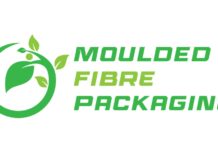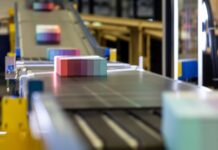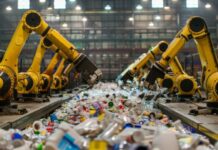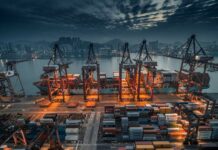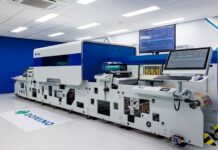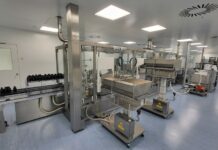It is well to be noted that in the world of packaging manufacturing, the capacity to optimize production schedules is indeed very essential for success. Production schedulers happen to be tasked with the intricate job in terms of orchestrating the flow of materials, machines, and manpower so as to ensure efficient operations and, at the same time, meet customer demands. But traditional scheduling methods often go on to fall short when it comes to adapting to the dynamic nature of material routing, thereby leading to inefficiencies, bottlenecks, and missed opportunities.
Enter AI-based predictive scheduling, which happens to be a groundbreaking approach that leverages advanced algorithms as well as machine learning in order to forecast demand, predict disruptions, and at the same time go ahead and optimize material routing, and that too in real-time.
Let us have a look as to how production schedulers within the packaging manufacturing facilities can go on to harness the power when it comes to AI in order to revolutionize their operations, with an emphasis when it comes to integration between PlanetTogether as well as leading ERP, SCM, and MES systems such as SAP, Oracle, Microsoft, Kinaxis, and Aveva.
Comprehending the Challenge
The packaging industry happens to function in a highly volatile environment, which is characterized by fluctuating demand, evolving customer choices, and supply chain intricacies. Traditional scheduling methods go on to rely on static rules as well as historical data, thereby making them ill-equipped to handle the dynamic nature of material routing. Due to this, production schedulers often go on to find themselves firefighting, thereby reacting to unforeseen disruptions instead of optimizing operations in a proactive way.
AI-driven predictive scheduling
AI-based predictive scheduling happens to represent a paradigm shift when it comes to how production scheduling is approached. By way of analyzing massive amounts of data in real-time, AI algorithms can go on to identify patterns, trends, and correlations that human schedulers may even overlook. This helps predictive modeling of future scenarios, enabling production schedulers to go ahead and make informed decisions and, at the same time, optimize material routing to get maximum efficiency.
Major Features and Benefits:
Demand Forecasting: AI algorithms can go on to analyze historical sales data, trends in the market, and external factors so as to predict future demand with an unprecedented amount of accuracy. Through forecasting demand, production schedulers can go ahead and proactively adjust schedules and, at the same time, allocate resources accordingly, thereby minimizing stockouts and excess inventory.
Dynamic Material Routing: It is well to be noted that traditional scheduling methods often go on to follow predetermined routes when it comes to material flow. Whereas AI-based predictive scheduling, dynamically alters material routing based on real-time elements such as machine availability, inventory levels, and production constraints. This agile approach goes on to optimize the material flow, decrease lead times, and also minimize production expenditures.
Real-time Optimization: One of the major advantages of AI-based predictive scheduling happens to be its ability to optimize schedules and that too in real-time. As fresh orders come in or unforeseen disruptions take place, AI algorithms can go on to quickly reevaluate schedules as well as recommend optimal solutions. This agility helps the production schedulers go ahead and embrace the changing conditions on the fly, hence making sure of smooth operations and timely order fulfillment.
Integration when it comes to ERP, SCM, and MES systems
The seamless integration across predictive scheduling software such as PlanetTogether and ERP, SCM, as well as MES systems like SAP, Oracle, Microsoft, Kinaxis, and also Aveva unravels the additional capabilities as well as efficiencies when it comes to packaging manufacturing. Let us know how-
Data Exchange in Real-Time: Integration helps the exchange of real-time data between predictive scheduling as well as enterprise systems, thereby ensuring that schedules happen to be based on the most up-to-date information with regards to orders, inventory levels, and production capacities.
Unified Visibility: Production schedulers go on to gain a comprehensive view of the overall manufacturing process, right from order entry to delivery, by way of integrating scheduling along with ERP, SCM, and MES systems. This unified visibility helps with better decision-making and coordination throughout the departments.
Seamless Implementation: Integrated systems enable seamless execution when it comes to optimized schedules by way of having automatic updates to ERP, SCM, as well as MES systems in reference to production progress, material usage, and even inventory levels.
Consistent Improvement: By way of analysing data coming from the integrated systems, production schedulers can go on to identify areas in terms of improvement, make scheduling algorithms afresh, and also execute the best practices so as to further enhance efficiency along with productivity.
Notably, AI-based predictive scheduling happens to be a game-changer for packaging manufacturing facilities that happen to be looking to optimize their operations. By way of harnessing the power when it comes to advanced algorithms as well as real-time data analysis, production schedulers can go ahead and proactively anticipate demand, optimize material routing, and also respond in a very swift way to disruptions.
Integration with leading ERP, SCM, and MES systems like SAP, Oracle, Microsoft, Kinaxis, and Aveva happens to be essential so as to unlock the full potential of AI-based predictive scheduling. Platforms such as PlanetTogether happen to offer seamless integration capabilities, hence helping the production schedulers to go ahead and make informed decisions and, at the same time, drive efficiency throughout the entire manufacturing process.
As the packaging sector continues to evolve, taking into account AI-based predictive scheduling will indeed be critical when it comes to staying competitive, meeting customer demands, and at the same time also achieving sustainable progress. Through investing in technology and innovation, packaging manufacturers can go on to pave the way for a much more efficient, agile, and resilient future.








